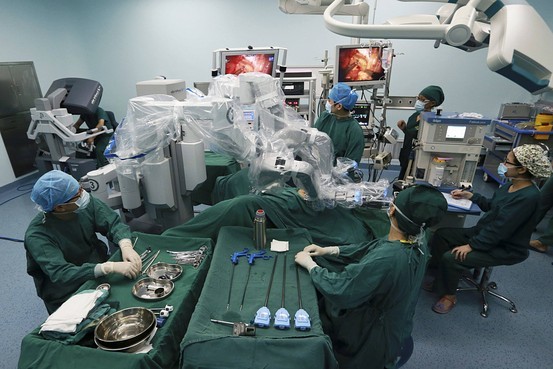While parts of China proclaimed the eastern Asian nation's increasingly modern outlook this week, using the dominance of online entities like Alibaba and Baidu as evidence, the global medical community continues to scrutinize the country's organ donation and transplant system.
Beijing's commitment to cease the harvesting of organs from the bodies of executed prisoners, effective on Jan. 1, 2015, was cause for relief around the world, but glaring problems still exist.
According to Huang Jiefu, China's former vice-minister of health, around 300,000 patients require organ transplants on an annual basis, but a massive shortfall eventuates, with only 10,000 surgeries performed during the same time frame.
The Chinese authorities attempted to alleviate the burgeoning level of organ demand by making it legal in 1984 to harvest organs from executed prisoners if their families gave consent. However, Beijing then faced ongoing pressure after international condemnation erupted in the wake of the decision.
Huang reported that, by 2011, 90 percent of organs used in transplant operations had been taken from executed prisoners. In accordance with historical patterns of such circumstances, a black market for human organs emerged, as those in need of fast money leapt upon an opportunity where desperate buyers would be willing to pay lucrative prices in their missions to save lives.
Claims emerged in 2011 that the organs in the black market had also been taken from China's prisons, as justice-system connections diverted them in a process that was akin to the manner in which illicit drugs enter prisons throughout the world.
However, the most significant obstacle to China's organ shortage, which stands out in a world where the number of available organs in many countries actually outweighs the demand, is belief-based. A tenet of the widely cherished Confucian school of thought states: "The body, hair and skin are received from the parents and one dares not harm them."
When Bloomberg spoke with a 40-year-old Chinese woman at the start of 2015, she said:
"I am quite conservative about this. . . . Especially for my family, I'm not willing to. I hope they can pass away with an intact body."
The woman explained that "it's an emotional issue." However, the interviewer did not ask her about the emotional cost of losing a family member in a system without enough healthy organs. For China, this is one of two important questions.
The other concerns the matter of whether China is willing to do all that it takes to be a leader according to world standards.



























